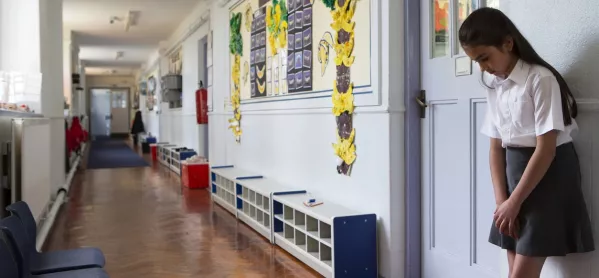Researchers at an independent charity have produced a new report containing recommendations for improving pupil behaviour in the classroom.
The Education Endowment Foundation (EEF) says the guidance is designed to support senior leaders in both primary and secondary schools to make better-informed decisions about their behaviour strategies.
Its report entitled Improving Behaviour in Schools also includes a number of practical examples of programmes and approaches.
Quick read: Why off-the-shelf behaviour policies don’t work
Quick listen: Why consistency in behaviour rules can be harmful
Want to know more? Training teachers to ‘transform’ education
Sir Kevan Collins, EEF chief executive, said: “While most pupils in most lessons are well-behaved, it [misbehaviour] is a major cause of stress for teachers and can have a lasting impact on the outcomes of the pupils in the class.
“There’s a clear need for schools to have consistent and clear behaviour policies that promote positive behaviour in lessons.”
The tips are:
1. Know and understand your pupils and their influences
Pupil behaviour has multiple influences, some of which teachers can manage directly. Understanding a pupil’s context will inform effective responses to misbehaviour. Every pupil should have a supportive relationship with a member of school staff.
2. Teach learning behaviours alongside managing misbehaviour
Teaching learning behaviours will reduce the need to manage misbehaviour. Teachers can provide the conditions for learning behaviours to develop by ensuring pupils can access the curriculum, engage with lesson content and participate in their learning. Teachers should encourage pupils to be self-reflective of their own behaviours.
3. Use classroom management strategies to support good classroom behaviour
Effective classroom management can reduce challenging behaviour, pupil disengagement, bullying and aggression. Improving classroom management usually involves intensive training with teachers reflecting on their classroom management, trying a new approach and reviewing their progress over time. Reinforcement programmes based on pupils gaining rewards can be effective when part of a broader classroom management strategy.
4. Use simple approaches as part of your regular routine
Some strategies that don’t require complex pedagogical changes have been shown to be promising. Breakfast clubs, greeting children at the door and working with parents can all support good behaviour. School leaders should ensure the school behaviour policy is clear and consistently applied.
5. Tailor targeted approaches to meet the needs of individuals in your school
Universal behaviour systems are unlikely to meet the needs of all your students. For pupils with more challenging behaviour, the approach should be tailored to individual needs. Teachers should be trained in specific strategies if supporting pupils with high behaviour needs.
6. Whole school
Consistency and coherence at a whole-school level are paramount. Whole-school changes usually take longer to embed than individually tailored or single-classroom approaches. However, behaviour programmes are more likely to have an impact on attainment outcomes if implemented at whole-school level.





